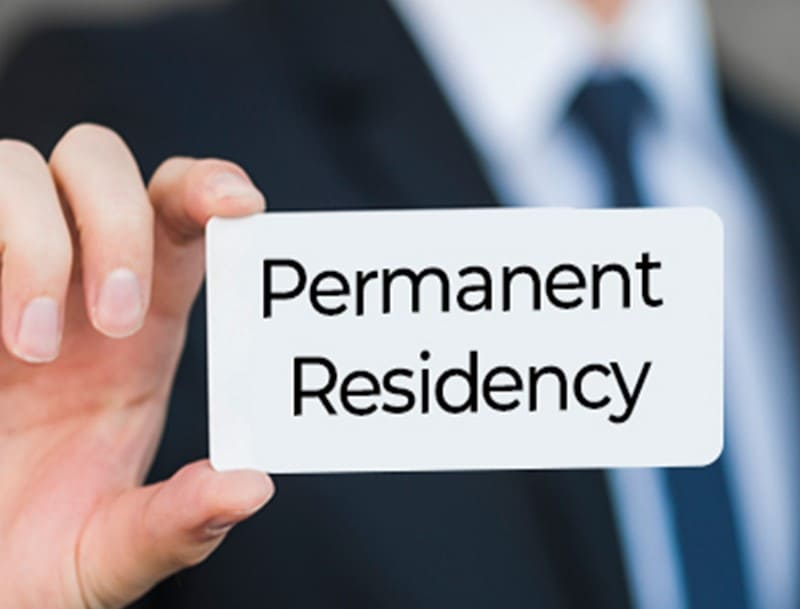
Our Appoinment Service Call Us

PERMANENT RESIDENCY
To understand Permanent Residency, let us discuss the various aspects related to it.
Who is a Permanent Resident?
A permanent resident is a non-Canadian citizen who has been awarded the Permanent resident status in Canada after arriving. Permanent residents are citizens of other countries.
Any temporary visitor like a student or a foreign worker cannot be considered a permanent resident.
Refugees resettled from foreign countries become permanent residents through the Government-Assisted Refugee Program or the Private Sponsorship of Refugees Program.
When a person applies for refugee status in Canada, they do not become a permanent resident.
Before someone may become a refugee, the Immigration and Refugee Board must first approve their claim. They must then apply for permanent residency and be granted it.
Permanent Residents have the right to do the following:
Obtain the majority of social benefits available to Canadian citizens, such as health care coverage, living, working, or studying anywhere in Canada. Additionally, applying for Canadian citizenship.
You would have protection from the esteemed bodies of Canadian law and the Charter of Rights and Freedoms.
You would have to mandatorily pay taxes and follow all federal, provincial, and municipal regulations in Canada.
Some additional pointers that you should keep in mind:
It is of utmost priority that you have lived 730 days in Canada in the previous five years to maintain your permanent residence status.
The 730 days don’t have to be consecutive. Some of your time spent overseas may be counted against the 730-day requirement.
Find out how much time you spent outside of the United States toward your permanent resident status. Use of a travel journal to keep track of your time in Canada can prove to be beneficial.
What are the chances of losing your Permanent Residency?
- When your PR card expires, you keep your permanent resident status. Only an official process can result in you losing your position.
- After an inquiry or PRTD appeal, an adjudicator determines that you are no longer a permanent resident.
- You have willingly renounced your status as a permanent resident.
- A deportation order is issued against you and is carried out.
- You become a citizen of Canada.
- Even if you don’t meet the residency requirement, you are still a permanent resident until your official status is decided.
If you wish to achieve Permanent Resident status, we are ready to help you in every step of the process. Reach out to us at